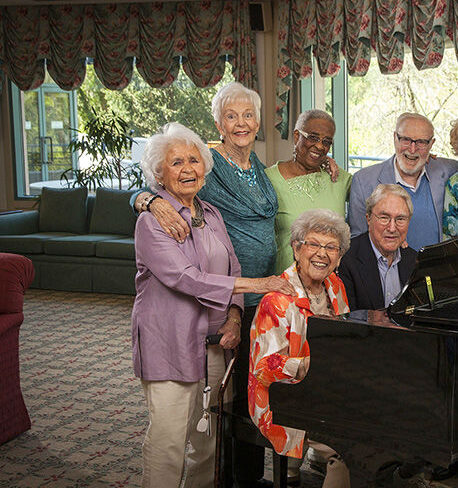While you were in the workforce and busy raising a family, you may not have had time to volunteer as often as you would have liked. But in retirement, it’s important to find ways to stay productive and engaged with life. And research shows volunteering may be just what the doctor ordered.
Take a look at the many benefits volunteering provides to keep the mind, body and spirit strong:
- Reduced hypertension
- Lower risk of depression
- Improved balance, agility, and flexibility
- Slower cognitive decline
Lower Your Blood Pressure by Volunteering
In a study conducted by Carnegie Mellon University, older adults who volunteered at least 200 hours per year had lower blood pressure after four years than those who did not volunteer.
Since hypertension is related to a number of health problems, including stroke and heart attack, volunteering may help reduce the risk of these diseases.
Interestingly, the lower blood pressure was not related just to the exercise provided by many volunteer activities – even volunteers who didn’t engage in physical activities like food service or gardening reaped the same rewards.
Ward off Depression
Many older adults begin to feel depressed after retirement, often due to social isolation and boredom. Volunteering boosts self-esteem and provides a way to form strong social connections with others who believe in the same causes you do.
Helping others also prompts the brain to release dopamine – the same feel-good hormone that gives you a natural high after a workout.
Volunteers Get Physical
Many volunteer activities, such as participating in a walk-a-thon, planting a community garden, or cooking meals for a soup kitchen, actually do involve physical activity. These volunteer activities can improve cardiovascular function, balance, and agility the same way any form of exercise does.
You’ll also enjoy the added boost of a built-in support community to keep you going, even on mornings when you’d rather stay in bed.
Volunteering Offers Brain Benefits
Planning activities, mentoring young adults, or helping elementary age children learn math exercise parts of your brain that may not get much of a work-out in retirement.
According to one study done by John Hopkins University, volunteering in ways that permit you to learn a new skill or use your intellect may actually help slow cognitive decline.
And because volunteering also improves physical health and reduces the risk of depression – both factors in Alzheimer’s disease and dementia – it may provide additional brain benefits, too.
Live Longer
One compelling study which researched 6,200 Americans over the age of 65. Doctors discovered that those who volunteered reduced their risk of death within the next seven years by about 50 percent.
Live Better
In addition to these tangible, proven benefits, volunteering provides a means to apply the skills you’ve learned over your whole life in a way that helps others. We can’t think of a better way to feel useful in your later years, while helping to build a better world for your grandchildren.
Volunteering may also provide opportunities to travel and to meet new people from different walks of life. Residents of the Five Star Senior Living communities across the country are engaged in a variety of volunteer projects on-site and around their local community.
Whether you’re a leader who wants to step up and plan events and activities, or just lend a helping hand when asked, there really isn’t a downside to volunteering.

